I’ve heard from a number of bloggers and website publishers about a recent shakeup with Google rankings. And some websites have been completely demoted in Google’s search rankings. Without warning. Did your website lose a big chunk of traffic recently? If so, then this post may help you identify what happened.
Let’s get right to it. There are three actionable tips in this post that will help you avoid losing organic traffic in the next Google algorithm update. In short, they are:
- Increase brand loyalty with a premium membership
- Create branded content people will search for by name
- Get people to search specifically for your branded content
So that’s the tl;dr version. And here’s some more detail, including a few observations I’ve had while reviewing several impacted websites.
As it turns out, there is no shortage of theories about what happened, and why. Needless to say, there’s a lot of juicy drama in the SEO world right now. You may have guessed it:
SEO is dead. Again. Well, not really.” –Curt Noble
As the Growth Manager here at MemberPress, I’ve been paying close attention to our own ranking in Google results. And, I’ll admit, I’ve experienced a bit of anxiety asking the question “what if it happened to us?” But two things provide me some reassurance.
First, we have a strong reputation.
Second, people search for our content by name.
So, the dust is settling on these recent algorithm changes. If you’re still getting traffic from Google, then you’ve weathered the storm. And now I’m going to share a few of my observations from these updates.
I’m also going to give you some specific tips that you can implement today. These tips could very well keep you insulated from future Google algorithm updates.
Understanding Google’s Algorithm Updates: A 2023-2024 Recap
In September, 2023 Google announced an impending update to its Helpful Content algorithm. A lot has been written about the purpose of these updates. So, I’ll just summarize it as best I can. Google’s goal was to cut low-quality content by up to 40% in its search results pages.
According to Google, the Helpful Content Update aims to address “content that seems to have been primarily created for ranking well in search engines rather than to help or inform people.”
Google’s March, 2024 Core Algorithm Update
Then, in March, 2024 Google announced that it would roll these Helpful Content changes into the core algorithm. Many SEO’s interpreted this to mean the algorithm would only impact individual, unhelpfu pages. However, from what I’ve observed so far, that’s not the case.
Affected websites have seen a severe drop in their traffic, site wide. The trend of organic traffic looks like this. And, as of the time of this blog post, none of the impacted sites have recovered their traffic.
What does your estimated traffic trend look like? For a quick analysis, just use the free domain research tool by Semrush. If you see a trend like the image above, then you have my condolences!
The Impact of Google’s Algorithm Changes on Small Businesses and Independent Publishers
This recent Google algorithm change has left a profound impact on both small businesses and independent publishers.
The new updates have altered the search landscape, nudging major brands and large websites such as Reddit ahead, leaving smaller entities grappling for visibility. However, this doesn’t necessarily translate to a bias against smaller players.
The impact has spawned some wild theories I’ve seen floating around on X and Reddit. Here are a few:
- Google is penalizing independent publishers who sell ads
- Google is penalizing affiliate marketers and niche sites
- Google is leveraging independent creators and publishers to train its AI engine
- Google is trying keep users on its site by providing answers directly in the search results page
If those assumptions aren’t dramatic enough for you, just wait until you hear all the conspiracy theories! I’m not going there though. The most important questions for now are:
First, am I at risk of the next algorithm update?
Second, what should I do right now?
Assessing Your Site’s Risk Against Google Algorithm Changes
As I mentioned earlier, Google wants to rank sites that provide helpful information to users. And they have a good reason to make sure users have a good experience. Google Search’s market share has been declining since these updates rolled out.
Remember, Google is trying to sniff out content that exists only to rank well in Google. And, it wants to promote content that answers questions for real people.
So, if you find yourself writing entire blog posts for the purpose of a keyword ranking, rather than to help people, it could be a sign of risk.
From what I’ve seen, there are two elements that appear to increase the risk of losing traffic from Google.
Relying Too Heavily on Google for Your Traffic and Revenue
Every website owner wants to rank number one in Google. And it can be easy to focus too much on the organic traffic channel. If a large portion of your website traffic and revenue is dependent on Google, you’re likely at risk.
For example, if 75% of your revenue relies on organic traffic, then you could be just one algorithm update away from business failure. That’s a scary thought, right?
Little or No Search Interest for Your Brand
Google’s Danny Sullivan explained recently that they observed people were increasingly appending search terms with the word “Reddit.” And they interepreted this to mean that users must really love Reddit content.
In my own observations I’ve noticed a trend that seems to track with what Danny suggested. Many of the impacted websites I’ve looked at seem to lack brand interest. In other words, nobody is searching specifically for their content.
So, if you don’t have people seeking you out, then you could risk losing traffic in the next algorithm update.
Debunking the Misperception: Does Google Really Dislike Affiliate Sites?
The answer is, no. It’s true that many of the affected websites do publish affiiliate links. But this, by itself, doesn’t shed any light on the big picture.
Affiliate links are a mainstream way to monetize website traffic. There are simply too many websites earning money from affiliate links for this to be a viable target. Can you imagine how bad the search results would be if Google just demoted all these sites?
Our own blog publishes affiliate links for some of our partners. So, I think there’s more to this SEO shakeup than simply affiliate links. I don’t recommend removing all your affiliate links.
How Successful Affiliate Sites Escaped the Helpful Content Update
AuthorityHacker tracks all things affiliate marketing. Recently they published an update to their list of successful affiliate sites. These sites don’t appear to be impacted by the recent algo update.
Algo? That’s SEO geek speak. The cool SEO’s can’t be bothered with saying the full word, algorithm. Use it in your next conversation about SEO and you’ll score some serious web-cred.
A common thread among every site on the list is branded search interest. According to Semrush, each site receives branded search traffic, relative to the total estimated traffic.
When people search for content published by a specific website, Google may interpret that as a useful signal.
This is where Danny Sullivan’s, previous hint points to. In that conversation over on the SEO subReddit, he mentioned that they can “see it reflected when there are searches where people are adding ‘reddit’ to queries and so on…it is satisfying, useful content to a lot of people.”

Are people adding your website name to their queries? This is what I believe Google is using as one key signal in determining organic search ranking.
And it turns out, you can take some specific actions to make sure people are searching for your brand!
How to Generate Branded Search Interest: The New SEO Currency
Generating branded search interest hinges on creating valuable content that users will look for by name.
It’s about creating a buzz around your brand and turning casual visitors into loyal fans. The kind of fans who will seek out your content by name.
Here are three action items you can implement now.
Create Premium Membership Content
The aim of premium membership content is to offer higher value to your users and foster loyalty to your brand. These exclusive offerings may include an online course, coaching program, podcast, subscriber-only videos, or webinars.
Consider offering downloadable e-books or white papers as a part of your membership perks. The key here is to provide something special that sparks a desire in your audience to be part of your brand community.
Offering value and a sense of exclusivity makes people more likely to append your brand name to their search queries.
Here is what launching a premium membership could do for your branded search interest. The following chart is a branded search trend for one of our customer’s websites.
The customer requested that we keep this site anonymous.


Get MemberPress Today!
Start getting paid for the content you create.
Building a Community Around Your Brand
A thriving digital community around your brand can act as a buffer against Google algorithm updates. Foster an environment where your customers can interact, learn, and grow. It could be a forum, an exclusive social media group, or even a private meetup.
Not only does this create branded search interest, but it also allows you to learn from your customers and fans, adapt to their needs, and in the process, make your brand indispensable.
Remember, Google values brands that users value. Win over your audience, and you’ll likely win over Google too.
Just Ask Them
This last tip is very tactical. And it might seem a little, um, forward. But just ask your fans and followers to search Google.
If you’ve got people following you on social media or YouTube, consider an additional call to action in your content. In addition to leaving your link in the comments or bio, you can ask them to search for it on Google.
For example, if I made a video about installing Google Analytics 4 on a WordPress website, I’d include a link to our full guide in the video description.
And you’d expect me to say something like “You can find a link to the step by step guide in the description below.”
But now, with this new information, I might say instead: “You can find my step by step guide by searching Google for MemberPress GA4 Guide.”
It can seem counterproductive to point people to Google to find your content. But if it’s well branded, Google will rank it. And people will find it. So, don’t be afraid to suggest that people Google you.
Wrapping Up
I’d like to hear from you about what you’ve experienced with these latest rounds of Google updates. Have you seen any examples where my branding theory doesn’t hold up? Leave a comment and let me know what you’ve been seeing.
If you’re not already offering a premium membership on your website, don’t delay. It could be the difference between success and failure. Especially if you’re relying on free Google search traffic.
MemberPress is the best suited solution to accomplish this. If you’ve got a WordPress site already, it’s as easy as signing up for MemberPress and installing the plugin.













There is another important way to keep a member site ranking high, and that is to allow the Google Bot to see all content including protected. Memberpress has an option for that.
BUT, if we just turn on that option it’s likely that our SEO will go down, not up. This is because Google has a rule against showing anything to the Bot that is not public UNLESS we also tell Google with markup that the content is paywalled.
The problem is that to do that requires some code and understanding of WP and PHP. That said, this would be easy for Memberpress to add and I strongly believe it should be a standard feature, or at least an Add on.
Read here about why this matters: https://developers.google.com/search/docs/appearance/structured-data/paywalled-content
If it’s useful I would be happy to share how I do this with Memberpress, but I don’t have the band width to support other member sites who wish to take this step:
Thank you, John, for your insightful comment! You’re absolutely right about the importance of allowing Google Bot to see protected content while also properly marking it as paywalled. This can impact SEO performance if not handled correctly. The link you provided to Google’s guidelines is a good resource for understanding structured data for paywalled content. We appreciate your feedback and will certainly consider integrating this functionality to help all our users optimize their SEO while maintaining the integrity of their paywalled content.